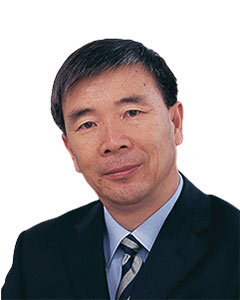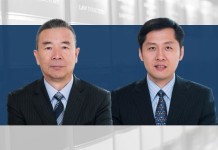The jurisdiction of the courts in intellectual property (IP) cases in China differs from that in ordinary civil and commercial cases. Not all basic-level courts can accept IP cases, and the hierarchy of court jurisdiction in IP cases also differs from that in other civil and commercial disputes.
Hierarchy of jurisdiction
The term “hierarchy of jurisdiction” refers to the division of authority between higher and lower level People’s Courts, and which is to be the court of first instance when a dispute arises. The Supreme People’s Court Notice on Adjusting Jurisdiction by Local People’s Courts at Each Level in Intellectual Property Civil Dispute Cases (the Notice) was implemented from 1 February 2010. The Notice adjusts and standardizes the criteria for jurisdiction in civil intellectual property dispute cases by higher, intermediate and basic level People’s Courts.

Executive partner
Run Ming Law Office
Higher People’s Courts will hear intellectual property civil cases at first instance where the amount at issue is RMB200 million (US$29 million)or more; and where the amount at issue is RMB100 million or more and where the domicile of one of the parties is outside the court’s jurisdiction or involves a foreign-related or a Hong Kong, Macao or Taiwan-related matter.
Intermediate People’s Courts will hear civil intellectual property cases where the criteria fall below those over which a Higher People’s Court has jurisdiction, other than cases in which basic level People’s Courts have jurisdiction.
Basic level People’s Courts will hear civil intellectual property cases at first instance (1) where the amount at issue is RMB5 million or less; and (2) where the amount at issue is not less than RMB5 million and not more than RMB10 million and where the domiciles of all the parties are within the jurisdiction of the Higher People’s Court or Intermediate People’s Court above it.
Furthermore, the Notice expressly provides that, when determining jurisdiction at first instance in civil IP cases that involve disputes over patents, new plant varieties, integrated circuit layout designs, the recognition of well-known trademarks and monopoly disputes, the relevant special provisions of the Supreme People’s Court in respect of jurisdiction over such special cases are to be complied with.
Objections to jurisdiction
The Supreme People’s Court Regulations on Several Issues Concerning the Trial of Civil Cases Involving Objections to Hierarchy of Jurisdiction (the Regulations) were implemented from 1 January 2010, and set forth clear provisions on the procedure for handling objections relating to the hierarchy of jurisdiction of courts. We believe that these Regulations apply to intellectual property cases as well as to other cases.

Partner
Run Ming Law Office
The PRC Civil Procedure Law sets forth the system for objections to jurisdiction but, in practice, it has generally been understood as applying only to objections to geographical jurisdiction, and not to objections to hierarchy of jurisdiction. Accordingly, a series of problems arose.
Intermediate and basic level courts have accepted cases that ought to have fallen within the jurisdiction of a higher level court, and have ignored objections raised by concerned parties. In response, the Supreme People’s Court issued a document acknowledging that parties had the right to raise objections to hierarchy of jurisdiction, but also expressly providing that no written rulings on such objections would be rendered, thus denying parties the possibility of appeal.
Sometimes courts that were well aware that they did not have jurisdiction in a case, for reasons of cost or local protectionism, applied to the court at the level above, either before or after acceptance of the case, to have the higher court hand the case downwards for trial. In such circumstances, parties had no right to raise an objection.
The PRC Civil Procedure Law specifies that an objection to jurisdiction must be filed within a 15-day period. Some plaintiffs have applied to add claims after the expiry of this period where, based on the additional claims, the case should have been heard by a higher level court. However, because the response period had expired, the defendants were no longer in a position to raise an objection.
The new Regulations expressly address each of these issues, thereby ensuring the rights of parties, particularly those of defendants.
- The Regulations provide that if a party raises an objection to a court’s jurisdiction, the accepting court is required to make a ruling, regardless of whether it deems such objection reasonable. The concerned party may then file an appeal in respect of such ruling.
- The Regulations provide that a lower level People’s Court may not apply to a higher level People’s Court to have it hand over a civil case for trial at first instance, which the higher level People’s Court has jurisdiction over. If a higher level People’s Court wishes to hand such a case to a lower level court, it is required to make a ruling to that effect. If a party appeals against such a ruling, the People’s Court at second instance is required to hear the case and make a ruling in accordance with the law.
- The Regulations provide that where a plaintiff adds claims after the expiration of the period for submitting a response, thereby causing the amount of the subject matter of the case to exceed the criteria for jurisdiction by the People’s Court that accepted the suit, and the defendant raises an objection to jurisdiction, the People’s Court is required to review the objection and render a ruling.
The implementation of the Notice and Regulations will divert a significant number of IP cases to basic level courts, thereby correspondingly reducing the trial load of intermediate and higher People’s Courts. Together, the Notice and the Regulations also provide parties, particularly defendants, with remedies that will prevent situations where a court at first instance accepts a case in violation of regulations.
Wang Yadong is executive partner at Run Ming Law Office.
Gao Song is a partner at Run Ming Law Office.

中国北京市朝阳区建国门外大街甲12号
新华保险大厦1806室
Suite 1806, NCI Tower,
12A Jianguomenwai Avenue,
Chaoyang District, Beijing, China
邮编 Postal code: 100022
电话 Tel: +8610 65693511
传真 Fax: +8610 65693512/13
www.runminglaw.com
电子信箱 E-mail:
wangyd@runminglaw.com
gaos@runminglaw.com





















